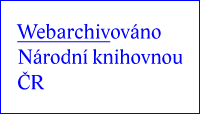Editorial 2022/1
Dear Friends, we present to you the summer issue of our magazine and believe that each of you will find in it something enriching for your further professional life. In the reviewed part we publish a Slo vak contribution on the theme of information ethics. Its author Jela Steinerová analyzes not only selected works dealing with information ethics, but also various aspects of development and direction of information and digital ethics. She highlights aspec ts of disinformation or misinformation, explains ethical factors of digital information literacy and describes various information behavior models as well as rules of the work with information, the truthfulness and usefulness of information, etc. The aim o f this valuable article is the design of the concept of information ecology on the social, community and personal level with emphasis on adaptation and ecology. In conclusion, the author recommends an analysis of existing information relationships in the d igital environment for ecological and ethical re design of information services and products. In the second reviewed article, Ludmila Šmídová introduces the personality of Josef Páleníček and his papers that, in 2019, became part of the collections of the Music Department of the National Library of the Czech Republic. Josef Páleníček (1914 1991), a leading Czech pianist, remembered mainly thanks to his interpretations of Leoš Janáček and Bohuslav Martinů, but equaly f o r his performances with the Czech Tri o teacher and influential organizer of musical life, left behind a remarkable compositional oeuvre. In 2019, descendants of Josef Páleníček donated their father's manuscript sheet music to the M usic D epartment of the National Library of the Czech Republic. The donation has now been cataloged and to date contains 277 bibliographical units. Páleníček's composition s present a valuable contribution to the Czech as well as world musi c and the availability to researchers of his music in its manuscript form will en able its new ap preciation and possibl y contribute to new stage performances of his musical legacy. In the next article Polish colleague Anna Maślanka presents an interesting phenomenon of publishing Czech literature in Poland. Czech literature has been att racting Polish readers for a long time and the author recapitulates the history of the journey of Czech literature in Poland in the period from 1993 to the present. It started mainly by publishing the most popular Czech authors Bohumil Hrabal, Milan Kund era, Jaroslav Hašek and Miroslav Ž amboch. A change came in 2010, when new, young, publishers appeared on the Polish publishing scene and began to focus on contemporary Czech writers. It is interesting that most of these publishers are also specialists in C zech language and literature , who translate th ese works themselves. T he author looks at disadvantages faced by small publishers as opposed to the larger, established ones and examines the role played in promoting contemporary Czech literature on the Polish book market by established translators, literary magazines and the Czech Centre in Warsaw. Another text, this time from the domestic scene, introduces us to Baťa Zlín period 1918 1939 and analyses the specific cultural policies of the firm's owner s, focu sed, among others, on the develop ment of their employees' reading . Barbora Svobodová, who has long been involved in this topic, focuses on various aspects of education in interwar Zlín, when the Baťa phenomenon encompassed not only the professional life of the firm's employees, but virtually every sphere of their lives . The r eading of suitable books was designed to teach employees corporate values. Getting first established in the Baťa community the "Bať a r eading" (th e term is explain ed in detail), then pro gressed to schools in Zl ín, such as Masaryk experimental schools, where it got incorporated into the literary curriculum. The "Baťa reading" vision carried the fingerprints of both personalities of this company, Tomáš Baťa as well as Jan Antonín Baťa. Read ing and writing was supported, for example, through literary prizes or Baťa newspapers, that published lists of recommended literature, praised diligent readers, and also pointed out specific sinners guilty of not returning books on time. Doc. Richard Pap ík "is not a famous multipublicist, spewing articles and books in a variety of magazines and publishing firms, but what he has published is worth reading and studying. And there is a lot" writes Rudolf Vlasák.The KKL database list s incredible (at the time of writing this editorial) 110 records of Richard Papík's contributions . I think the medallion biography under the title Sixty years young" speaks for everything. Together with its author, Rudolf Vlasák, I thank Richard for his work in our field, for his unflagging optimism trying to see in us potential authors, cataloguers, researches, managers of libraries, leaders, innovators... and thus to inspire and motivate us further in our work. The editors of this magazine thank him for his long years on the edit orial board and wish him a lot of health, happiness, contentment, fulfillment of his wishes and especially the retention of his constant enthusiasm. W e publish two book reviews i n this issue . A work on a historical theme, Chateaux libraries of South West Moravia, is reviewed by Lucie Heilandová. The second review, this time on the current topic, is by Pavlína Mazáčová who looks at the book Project With a book to life (Bookstart) and logopedic prevention: methodological guide for libraries. As usually th e issue closes with the sections Recommended readings from the Library and Information Science Literature Library and the New library science publications from abroad. I wish you all a good read and enjoyable summer days. For those who have the intention t o publish, I remind you that deadlines for both magazines can be found on our website. For the Editorial Board Renáta Salátová









